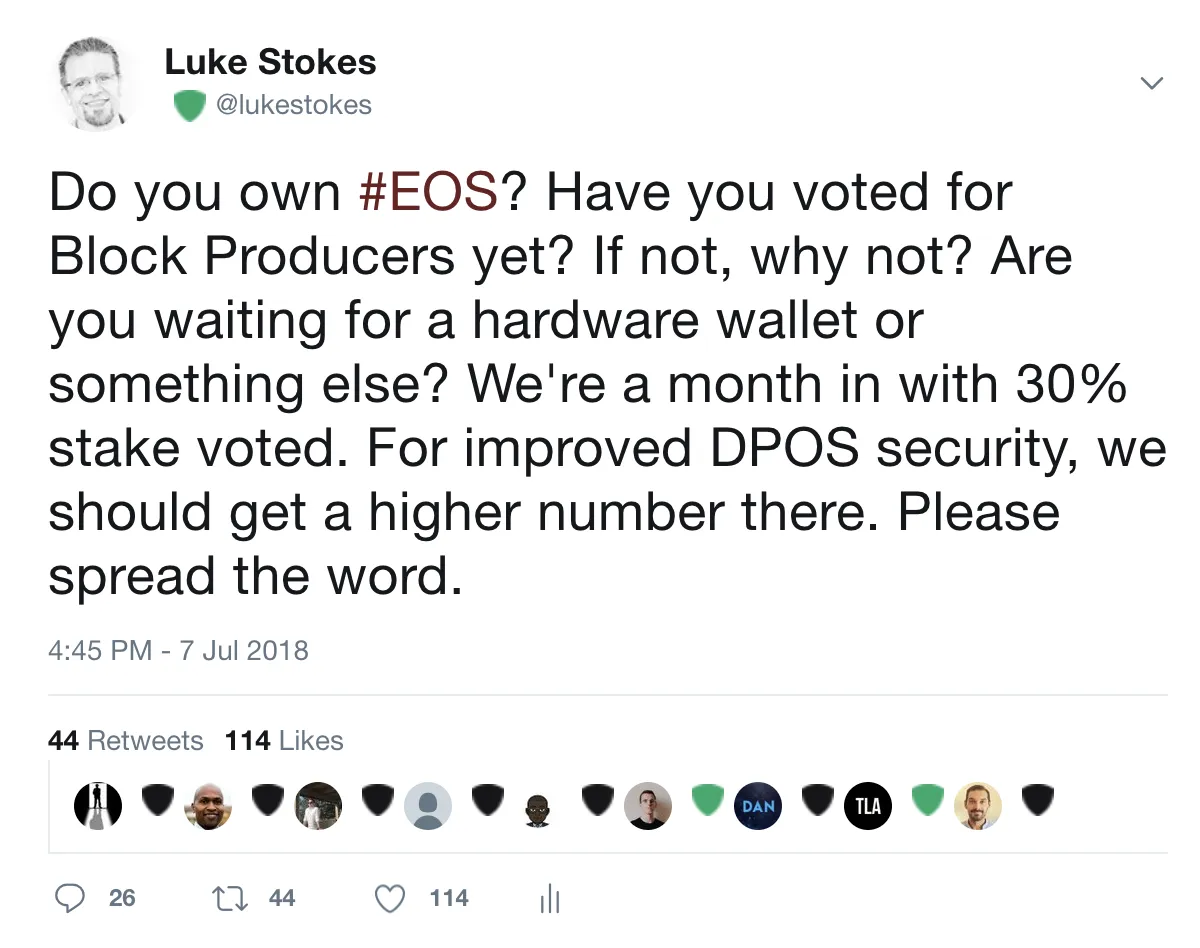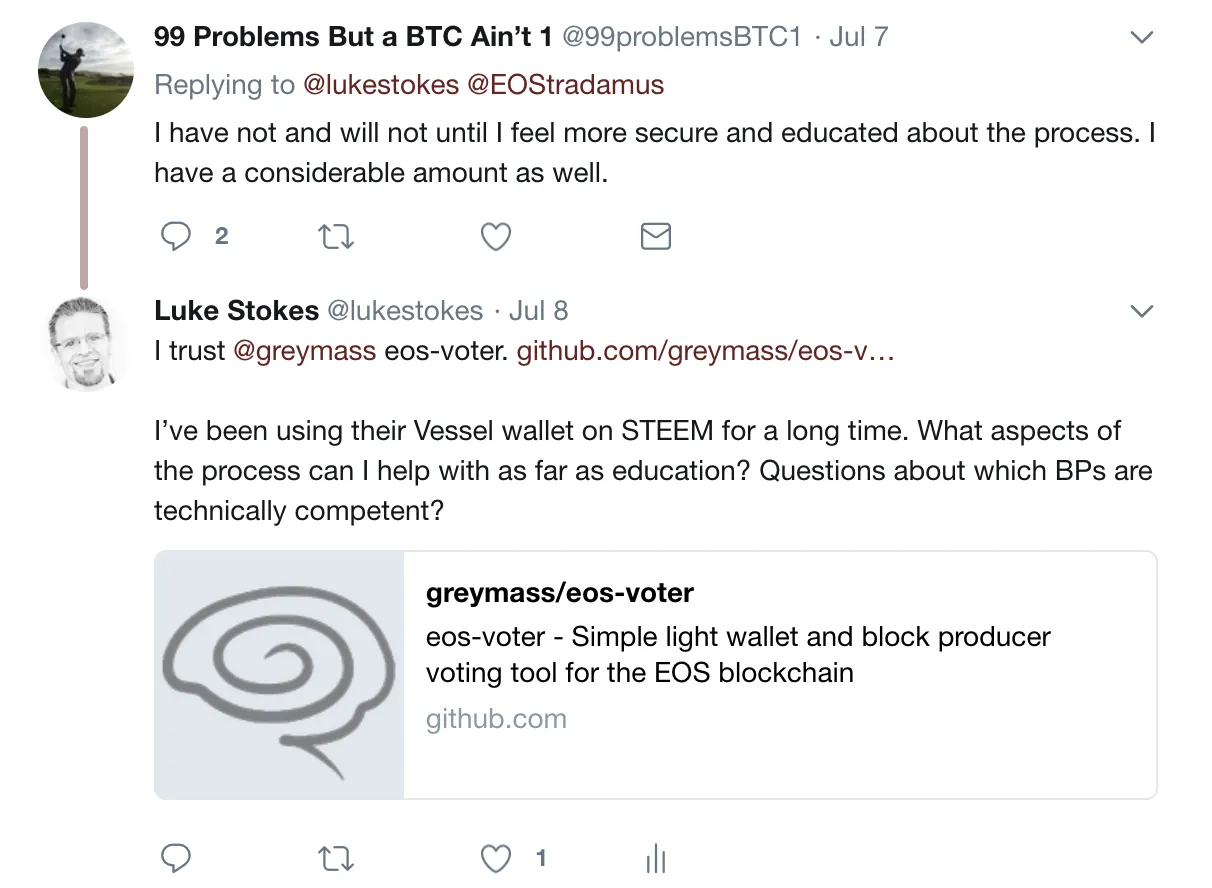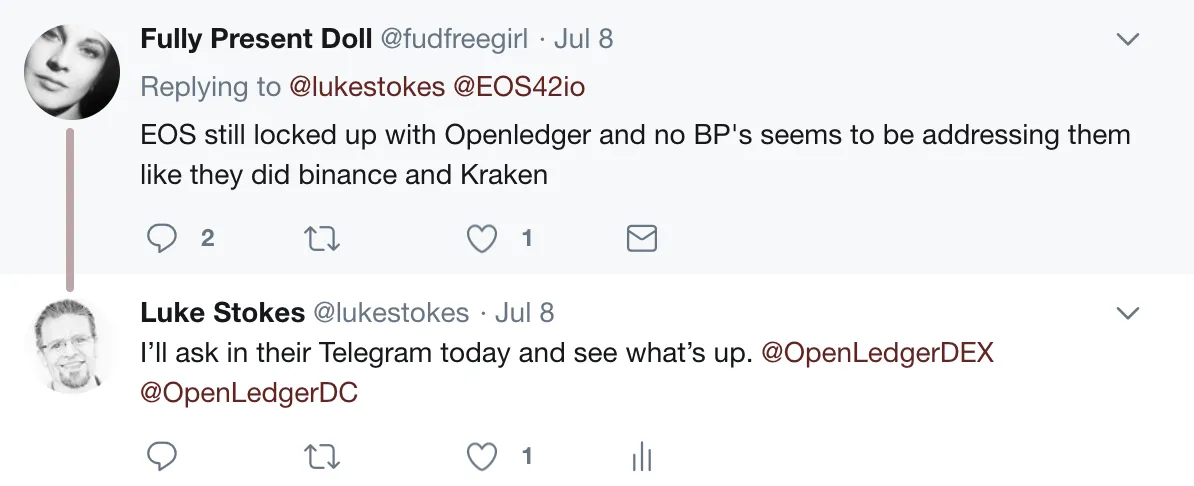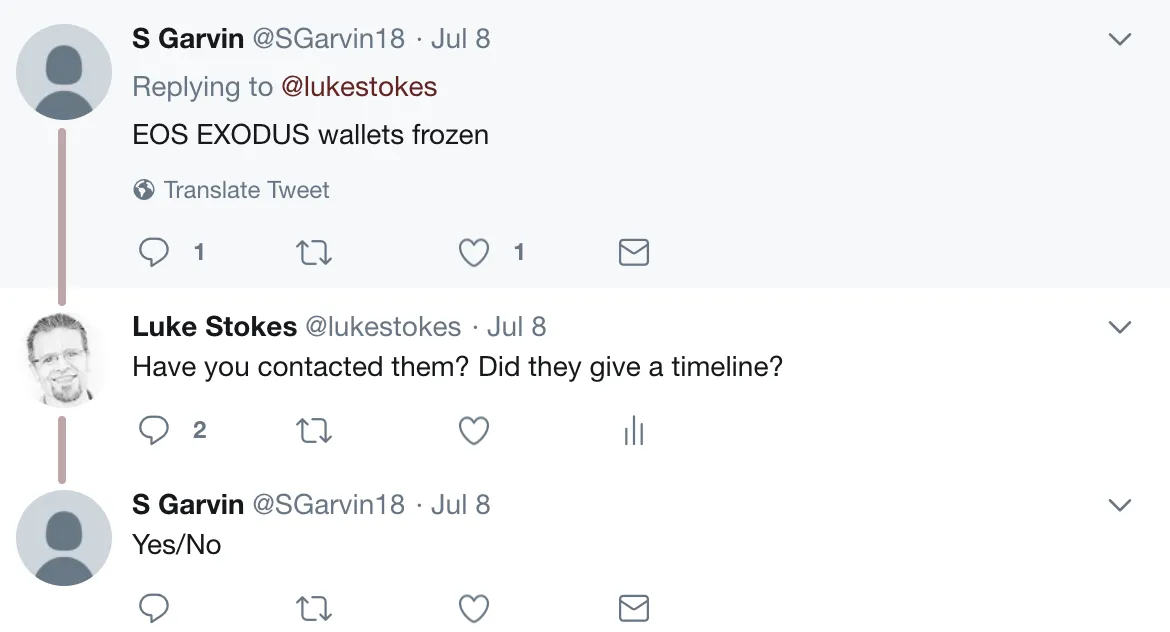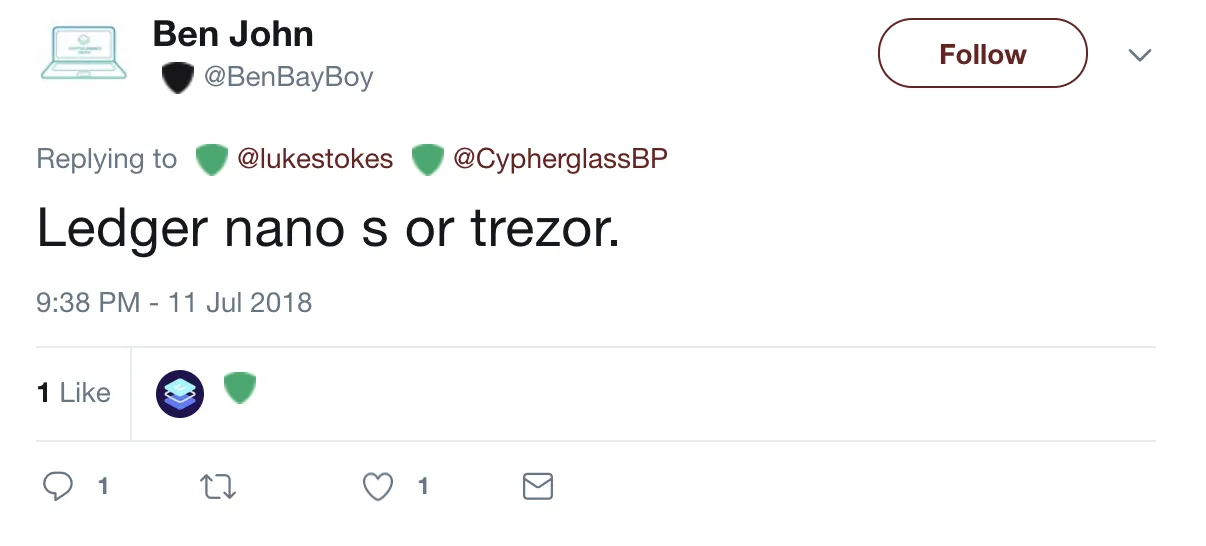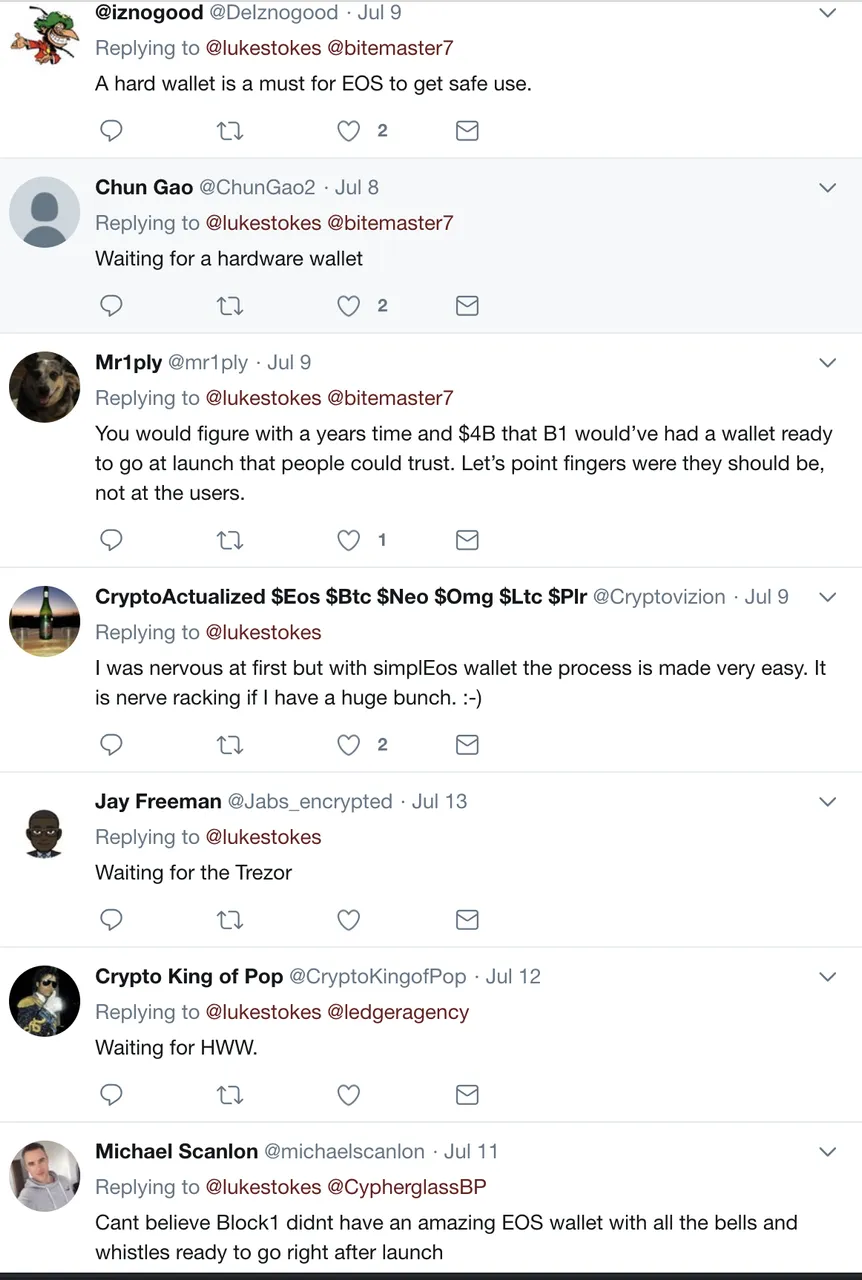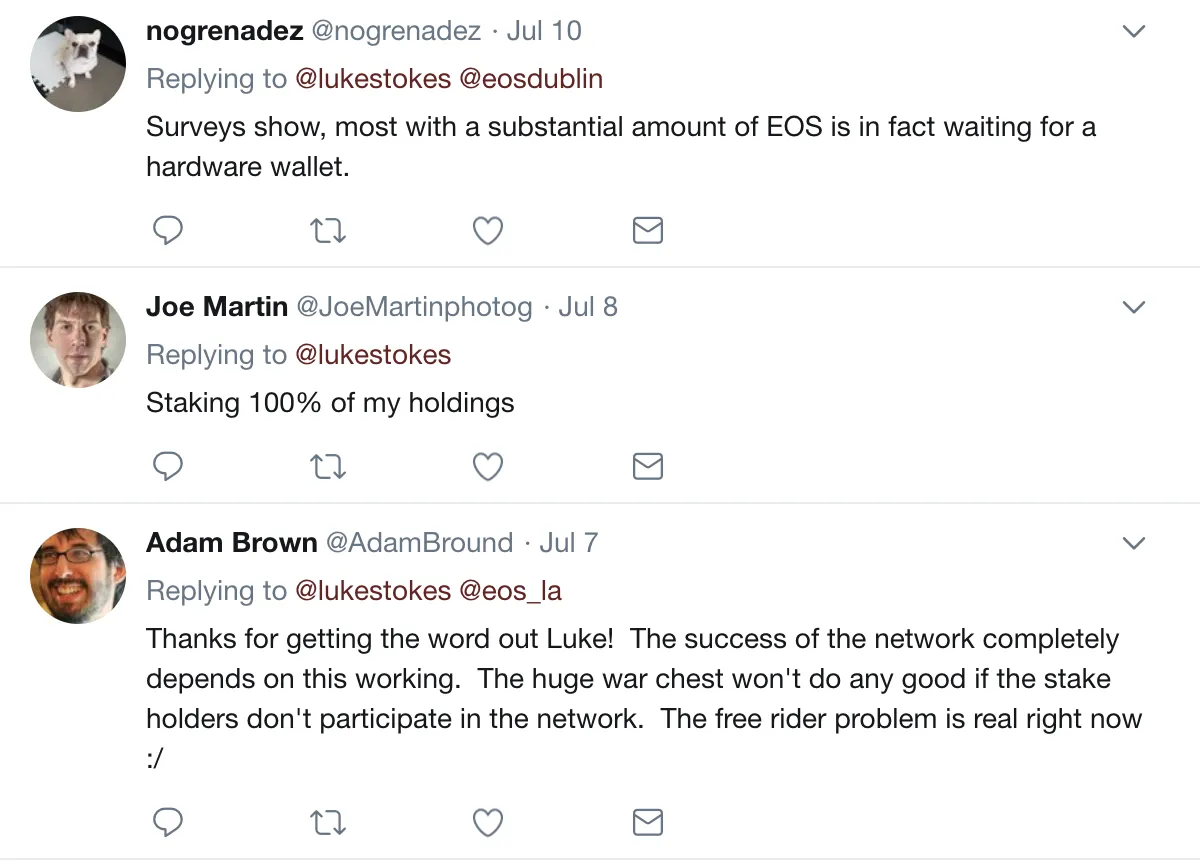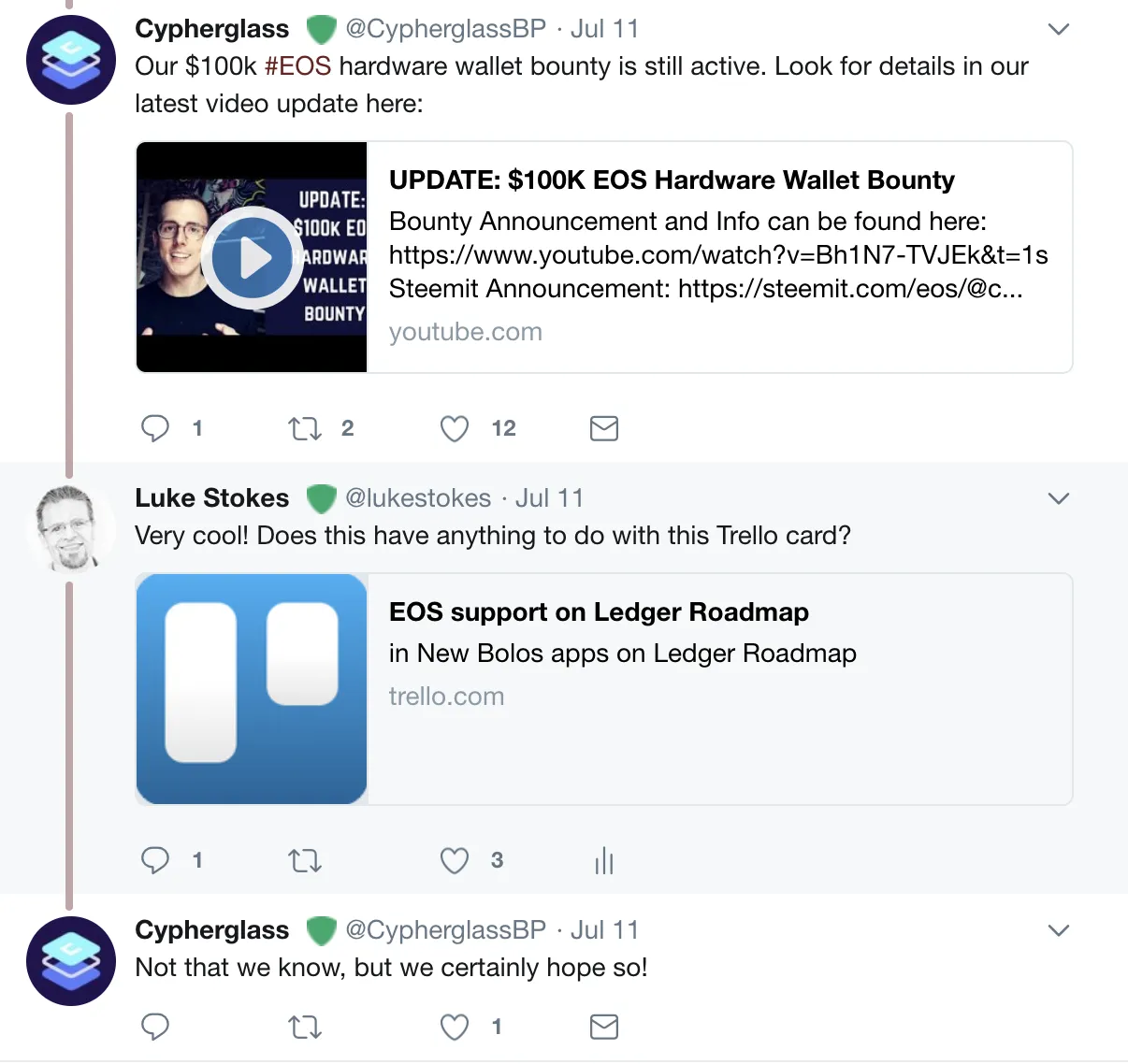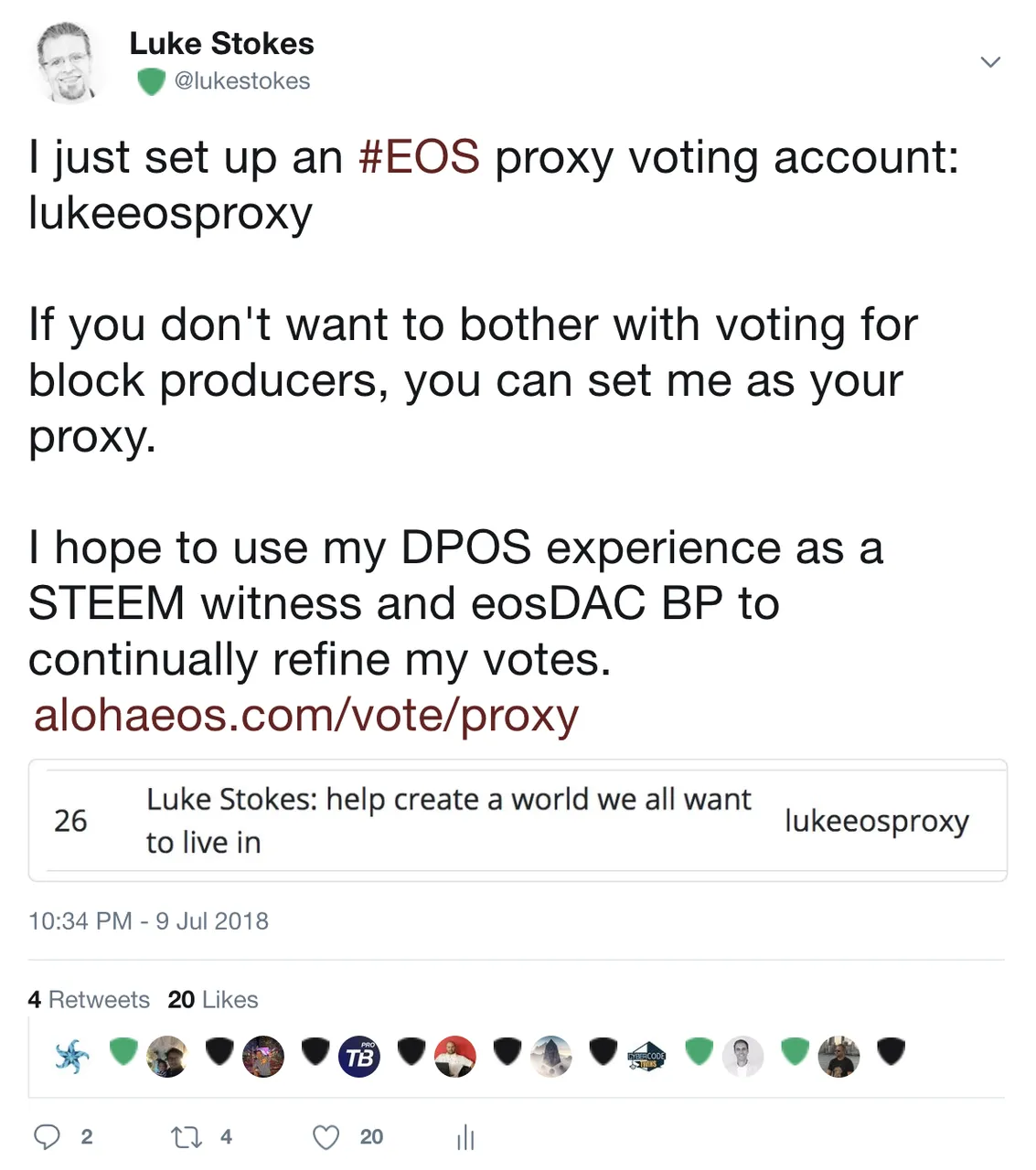A while back, I had a semi-viral tweet asking EOS holders why they have not yet voted for block producers:
In some cases education may be what's missing:
In others, it may come down to tokens frozen on exchanges or in wallets such as OpenLedger and Exodus:
By far, however, the number one, overwhelming reason for lack of voter turnout appears to be the lack of offline, hardware wallets:
Some appear frustrated with Block One for not building and delivering a hardware solution for Ledger/Tezor. Others like Cypherglass have put out a bounty, but we don't have details yet on a finished product (though we hope for one soon).
This Trello card for EOS Ledger Nano S support now has over 100 votes.
Meanwhile, we're still only at 31% of token holder stake voting:
Why is voting important?
Delegated Proof of Stake (DPOS) relies on token holders being engaged in the election of technically skilled, trustworthy, value-creating block producers. Block producers manage secure servers which run trusted, updated software to collect new transactions on the EOSIO Mainnet, sign them, and add them to new blocks.
If you'd like more clarity on what a blockchain actually is or how it works, this 17 minute video by @andersbrownworth is really easy to follow:
In Proof of Work (POW) systems like Bitcoin and Ethereum, the block producers (called miners) can be anyone with enough money to afford the electricity and hardware (usually warehouse's full of ASICs or GPU cards) to have enough hashing power to earn block creation rewards. Sometimes the incentives of the miners don't align with those of the token holders leading to high fees and long transaction delays. Centralization can also occur as miners team up to create larger and larger mining pools to share block rewards and thus increase the frequency of payments to block producers. This competitive system is often wasteful, so the rewards have to remain very high.
When it comes to DPOS, the block producers are elected by token holders. They don't compete with each other directly to sign blocks, but instead compete to earn the trust of the community and are scheduled by the blockchain to sign when it is there turn, if they are in the top 21 block producers by staked token vote.
If we don't have enough voters determining who the top 21 block producers are, then it's theocratically possible for a handful of large token holders who has more influence than the current 31% voting to come in and effectively decide who gets to be a block producer. This could lead to systemic risks if a small number of people could vote in block producers they directly control to eventually reach a 2/3+1 majority which gives them the power to change the network itself. There are Constitutional and Ricardian Contracts in place to help prevent this, but the best way to avoid it is to have a lot of different EOS token holders voting for the block producers they value most. Those with the most invested in EOS have the most incentive to see it succeed and remain secure, but we should not leave risks open if we can avoid it.
Yes, we want hardware wallets to make the voting process easy and secure. We also need a secure blockchain which requires voter participation. The STEEM and BitShares networks which are also DPOS have a combined market cap over over $900,000,000 and they still do not have hardware wallet support. Yes, EOS currently has a much higher market cap, but that should be an argument for more voter participation to secure the chain, even considering the perceived risk of voting with the current solutions.
As @dan mentioned recently, Block One is working on a solution:
Block.one is building a free iOS hardware wallet using Apple’s Secure Enclave.
But will that be enough for users who don't want their devices ever directly connected to the Internet? If they are waiting for Block One's solution, is it really much different than using Scatter, EOS-Voter, or SimplEOS today since those private keys are never sent over the Internet and they are encrypted at rest? Yes other options may exist on the horizon such as something called the Nebula Wallet by Cybex, but should we wait? For those that kept their ERC20 EOS tokens on their hardware devices, did they register their EOS and if so, how are they securing those private EOS keys right now? Is using a secure, encrypted tool like EOS-Voter by @greymass any less secure than however they are currently securing their private key?
For the security of the network, I sure hope the majority of token holders will no longer rely on others to secure their investment but will instead take personal responsibility to vote in block producers who will keep their investment safe and keep the network running smoothly. If they don't want to use their keys over and over again to refresh their votes, they can set a proxy voter for their account one time. You can find a list of proxies here or you can use me as your proxy lukeeosproxy as I've mentioned previously:
One of the block producers I vote for is eosDAC because I'm not only part of the launch team, but I also truly believe DACs (Decentralized Autonomous Communities) are the future, and we're helping build them. You can find out more about eosDAC and our eosdacserver block producer in this 80 second video:
For a deep dive into DACs, this 30 minute video will get you started:
We have a growing team you can join via our newsletter at http://eosdac.io/ and our Discord server: http://discord.io/eosdac
I hope your takeaways from this post include:
- The reason many EOS holders aren't voting for block producers right now is the lack of offline hardware support.
- DPOS requires broad voter participation to remain fully secure.
- Waiting for a perfect voting solution before you vote may be counter productive as the network should be secured now.
- Great, secure solutions exist right now for voting and setting a proxy including:
eosdacserver, the DAC Enabler, would appreciate your vote or you can setlukeeosproxyas your voting proxy.
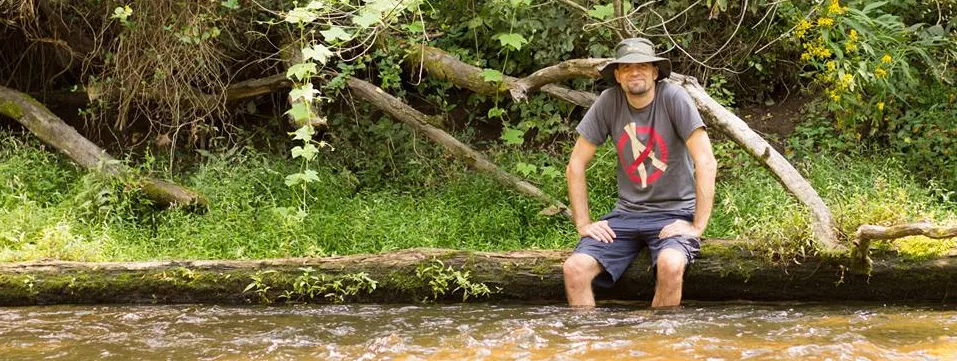
Luke Stokes is a father, husband, programmer, STEEM witness, DAC launcher, and voluntaryist who wants to help create a world we all want to live in. Learn about cryptocurrency at UnderstandingBlockchainFreedom.com








